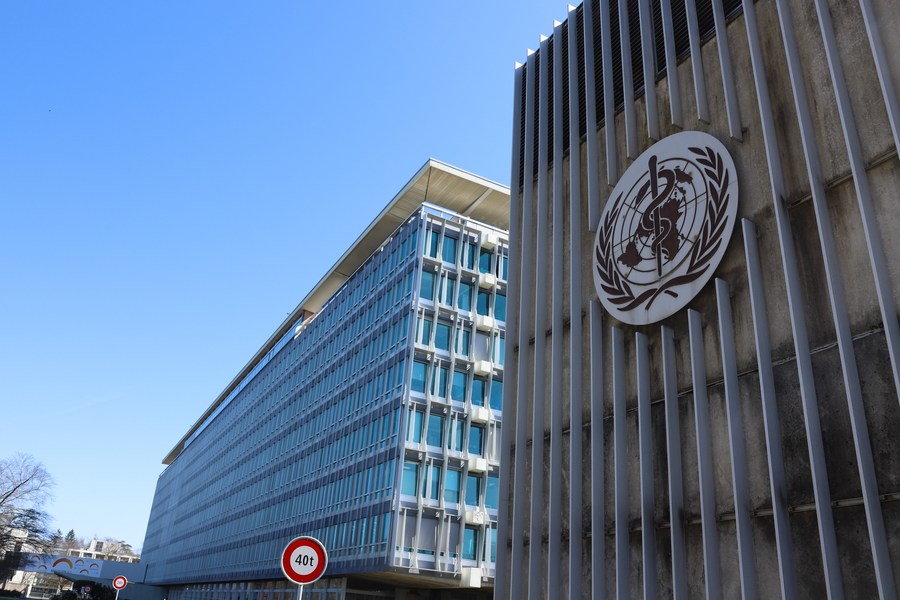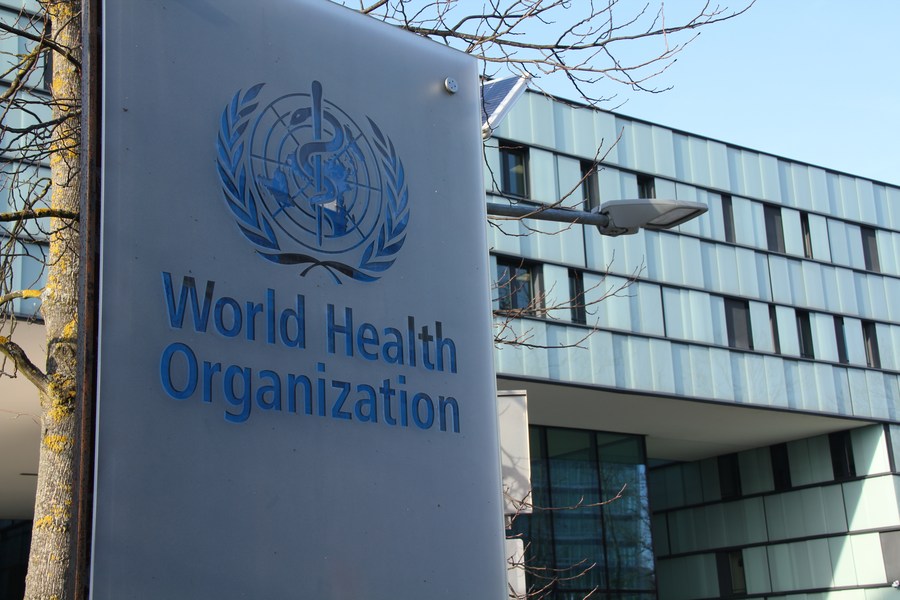WHO report on virus origins work of "collaboration," says WHO team leader

Photo taken on March 30, 2021 shows an exterior view of the headquarters of the World Health Organization (WHO) in Geneva, Switzerland. (Xinhua/Chen Junxia)
"That would never been anything like that, if we did not have a very strong, very good cooperation with our colleagues in China; we would then have ended up with a very small report with very few results very few studies presented," he added.
GENEVA, March 31 (Xinhua) -- The World Health Organization (WHO) report on the joint WHO-China study of COVID-19 origins was a "consensus" effort of a "sheer size" but it was too soon to provide definitive conclusions in a work that is still in progress, the WHO research team said on Tuesday.
Peter K. Ben Embarek, a food safety and zoonosis expert with the WHO and leader of the international team of experts to Wuhan, told a press conference that conclusions of the report were the results of a consensus between all members of the team, which included 17 foreign experts and 17 Chinese scientists.
"Of course there were discussions forth and back, like always in this type of discussion," he said, stressing that "we were able to reach a consensus on all the issues."
Commending the collaboration with Chinese experts, Ben Embarek said, "the size of the report and the amount of material, results, analysis and data in the report speaks for itself in terms of how the collaboration went."
"That would never been anything like that, if we did not have a very strong, very good cooperation with our colleagues in China; we would then have ended up with a very small report with very few results very few studies presented," he added.
The 120-page document, composed after the team's 28-day field study in Wuhan, the capital city of China's Hubei Province earlier this year, shed light on the likeliness of different pathways for the origins of COVID-19.
They conclude that it's a "likely to very likely pathway" for the virus to infect humans through an intermediate host, while introduction of the virus through a laboratory incident was "extremely unlikely." And in between, direct zoonotic spillover is considered to be a possible-to-likely pathway, while cold food chain products are a possible pathway.
However, even though the report brought considerable amounts of data, definitive conclusions could not be brought in the report yet.

Photo taken on Jan. 22, 2020 shows an exterior view of the headquarters of the World Health Organization (WHO) in Geneva, Switzerland. (Xinhua/Liu Qu)
"That was never the intention or the expectation," Ben Embarek said, "this is work in progress."
"I think there is a consensus that these new studies need to be undertaken, preferably as soon as possible," he added.
"We owe to the world to get a better understanding of the origin of this virus" that "created havoc on the planet," he said, extending the team's collective sincere thanks to Wuhan locals for their cooperation during their research.
Prof. Marion Koopmans, a team member from the Netherlands, said that experts both from China and overseas have come very far in the collaboration of finding the origins of the virus, for which they will continue following the scientific leads.
Dr. Peter Daszak from the United States said that it's the Chinese scientists who did a lot of work in tracing the origins, and that the report is a "testament to how, even under very intense scrutiny and very difficult political circumstances, countries can come together to focus on the origins of emerging diseases and viruses."
"Don't think about national boundaries if we really want to defeat pandemics; we have to come together with other countries to focus on how they (COVID-19) emerge and try and stop them for the future," Daszak said, expressing the hope that the spirit of goodwill continues.

A medical worker shows a dose of Chinese COVID-19 vaccine in Bishkek, capital of Kyrgyzstan, March 29, 2021. (Photo by Roman/Xinhua)
Before the release of the report, Chen Xu, head of the Chinese Mission to the United Nations in Geneva, said that the international experts from China and the WHO had demonstrated a scientific and open spirit and the Chinese government at all levels had provided necessary assistance for their work in Wuhan, which fully reflected the open, transparent and responsible attitude of China, and was highly appreciated by experts from both sides.
Photos
Related Stories
- Laboratory origin of COVID-19 pandemic "extremely unlikely": WHO
- COVID-19 introduction through intermediate host "likely to very likely": WHO
- WHO highlights importance to investigate early COVID-19 cases in different countries
- Commentary: Make COVID-19 origin-tracing about science, not politics
- China, WHO joint research to boost global cooperation in COVID-19 origin tracing: spokesperson
Copyright © 2021 People's Daily Online. All Rights Reserved.










